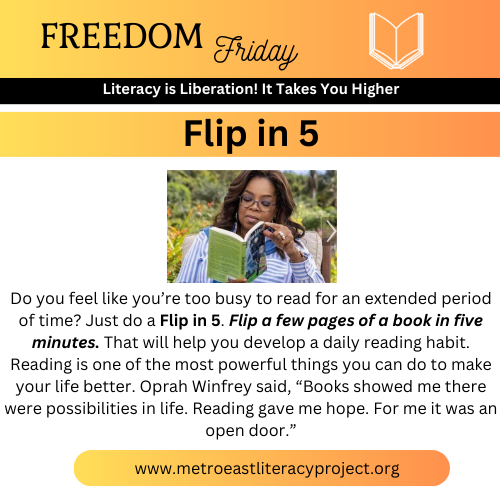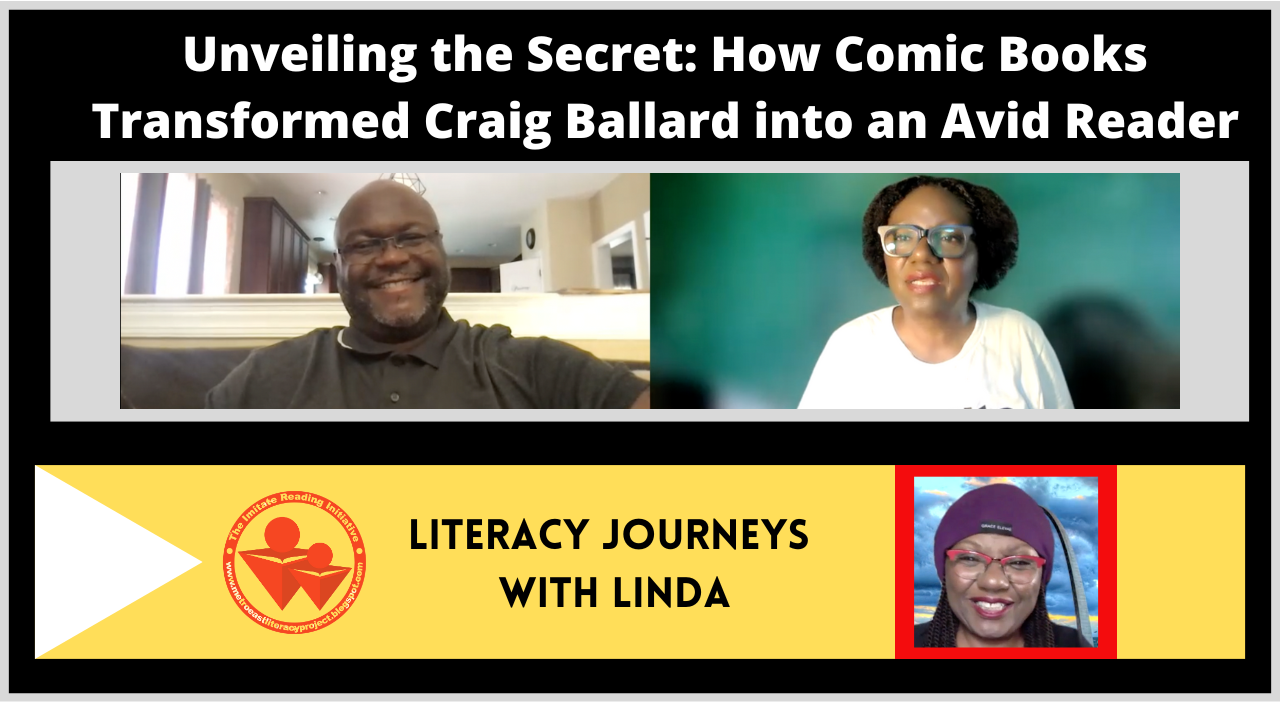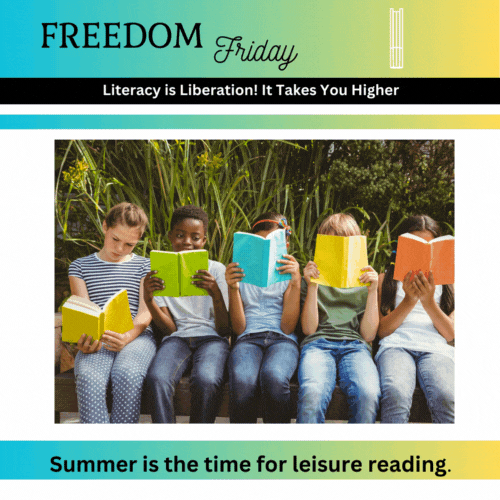|
The Metro East Literacy Project sends these short Freedom Friday messages to families that receive a bag of 25 books. Families opt in to receive messages to encourage them along their literacy journey. Will you consider becoming an Encouragement Team Volunteer (ETV)? You can encourage remotely. Visit the link to learn more. Thank you. https://www.metroeastliteracyproject.org/join-the-encouragement-team.html
0 Comments
Literacy Journeys with Linda: How Comic Books Transformed Craig Ballard into an Avid Reader7/8/2023 Kids sometimes get bored in the summer when school is out. But don’t let their minds turn to mush. Encourage them to keep practicing their reading skills throughout the summer. The adults in the home can read too to set the example. Search the Internet for summer reading lists. There’s plenty to choose from.
|
|



 RSS Feed
RSS Feed